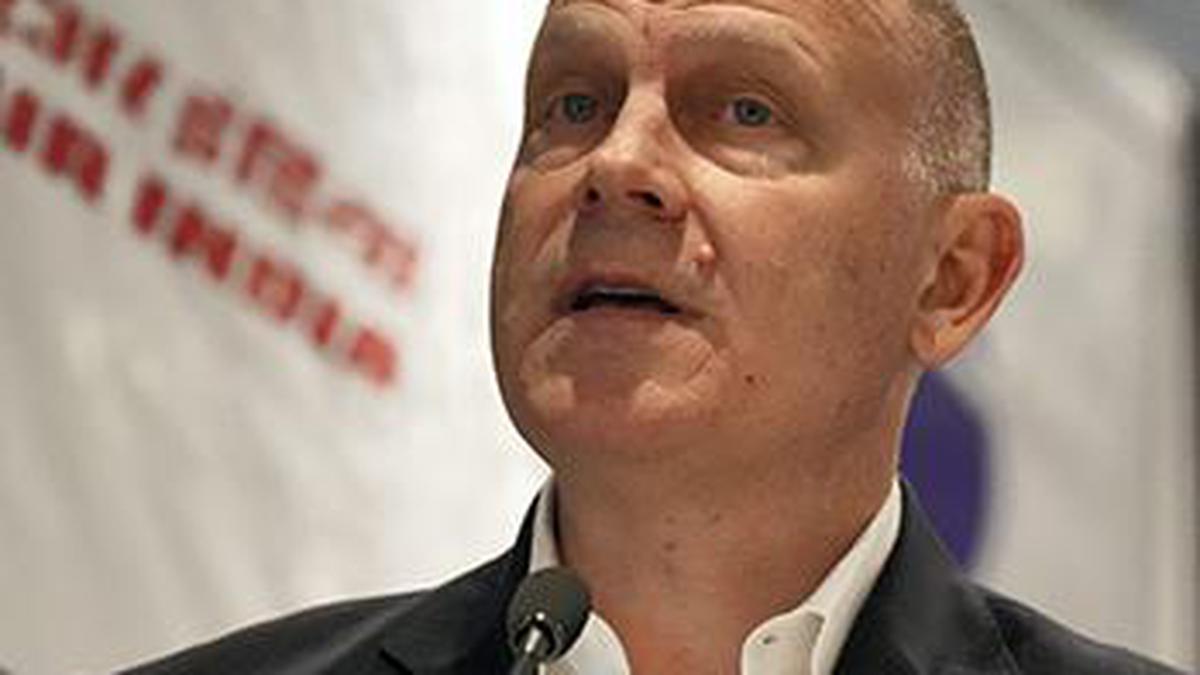
India must not open floodgates for foreign carriers, should allow Air India to offer non-stop opportunity for Indians: CEO
The Hindu
Air India CEO Campbell Wilson opposes the demands from Gulf carriers to increase the number of flights to India, citing it would not be in the national interest. Instead, the airline is concentrating on non-stop routes and offering direct flights to the US and Europe for Indian travelers. The airline has invested $70 billion to offer non-stop opportunities for travelers. Furthermore, the CEO highlights that middle-eastern airlines abuse their bilateral rights and should only focus their traffic on carrying people to their hub. The airline has placed an order of 470 aircraft to expand its network
Air India CEO Campbell Wilson came out all guns blazing against demands from Gulf carriers such as Emirates to allow them more flights into the country, adding that India must not “open the floodgates” as it was in the “national interest” for his firm to develop non-stop routes and for Indian travellers to enjoy direct flights to destinations in the U.S. and Europe.
“Air India has not been able to cater to the need of Indian travellers whether it is because of lack of aircraft or lack of investment. In the void left by erstwhile Air India, a lot of other airlines filled the gap and so they take a lot of people from India to the U.S. or to Europe. As Air India invests and gets more fleet and seeks to serve these markets non-stop, I think it is in the national interest for Air India to be given the opportunity to develop those markets,” Mr. Wilson told The Hindu in an exclusive interview.
“If we throw open the floodgates and don’t let that time for the airline to grow, we perpetuate the situation where Indian travellers to and from India don’t have the non-stop opportunity. We have invested $70billion in trying to realise that opportunity,” he added emphatically. The airline recently placed an order of 470 aircraft, including 70 widebodies.
Ever since the airline was privatised in January last year and its control handed over to Tata Sons its primary focus while expanding its network has been adding flights to Europe and the US. To achieve this, it has also leased 11 Boeing 777 aircraft that are flown to some of these destinations and carried out maintenance work on 13 of its widebody planes to make them airworthy. It has enhanced its weekly flights to the US from 34 to 47 and now provides 14 weekly flights to Canada and 73 weekly flights to Europe
The comments come at a time Dubai has requested India that the bilateral air service agreements - that caps the number of seats that carriers can fly between the two nationss at 66,000 seats - be raised by another 50,000 seats. Dubai’s Emirates and FlyDubai have reached the upper limit and Indian carriers are also nearly there. Some Indian carriers such as the brand new Akasa, which plans to commence international flights later this year, as well as IndiGo have also demanded an increase in seats. Turkish Airlines has also requested that it be allowed to raise the 14 flights it is permitted to 28.
Last month, Emirates President Tim Clarke in a press interaction said that by restricting capacity, India was constraining its growth. “We are here to add value to the Indian economy,” he said and cautioned that if India didn’t “expand the capacity, the losers will be the people who want to go there (travel to destinations such as Dubai)“. The Director General of Indian Air Transport Association (IATA), which represents over 300 airlines globally, told The Hindu earlier this month that if India restricted access to its markets, “other countries will restrict capacity as well.”
But Air India CEO said carriers from West Asia were abusing their bilateral rights and flying passengers beyond their hubs.













